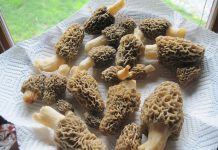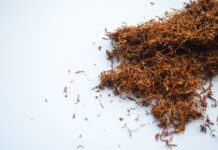The year isn’t five months old and hog farmers already have had a year to forget: a sick global economy sickening pork demand, costlier feed and a call-it-whatever flu that’s lopped $15 off hog prices in the blink of an eye.
Indeed, 2009 has been so bad — on May 5, the National Pork Producers Council (NPPC) estimated U.S. producers were losing $7.2 million a day — some major pork players are now whispering about the need for a federal bailout.
The chances for a pig industry bailout are roughly equal to the chances that pigs will fly.
After all, according to Successful Farming’s annual Pork Powerhouses survey last fall, just 20 industrial-sized producers own 2.947 million sows that will produce six out of every 10 pigs in America this year.
No thanks
As such, while there are thousands of independent producers being smashed by pork’s present calamities, any federal program to give hog farmers a helping hand will also guarantee Big Pig, Inc. an arm, leg and side of ribs. Bailout? No thanks.
One part of the pork industry — and, given the size and number of its majority players, it’s more a club than an industry — is on the upswing, though.
On March 9, NPPC sold Validus Services LLC, its for-profit ag consulting business. Neither NPPC nor Validus’ buyers, investors led by its boss, Earl Dotson, released terms of the deal.
Validus
Longtime readers may recognize Validus. Three times in the past eight years this space has chronicled the brief, profitable history of Validus which began life in 1998 as Environmental Management Solutions (EMS) with a $1.5 million investment from the producer-funded pork checkoff.
After various incarnations, NPPC, the non profit group, ended up owning EMS despite the checkoff cash. In late 2001, NPPC formed a for-profit subsidiary and parked EMS in it.
Later renamed Validus, the subsidiary had a cloudy but profitable partnership with a tiny Washington operation called America’s Clean Water Foundation, or ACWF.
Between 1998 and 2003, the not-for-profit ACWF received $25.9 million in Environmental Protection Agency grants to monitor — one guesses — clean water, right?
Not exactly
Well, not exactly. According to a February 2007 EPA Inspector General’s report, $21.1 million of the grant money went to ACWF’s biggest contractor, NPPC’s Validus, for on-farm environmental assessments.
In the middle of funneling money to Validus, the clean water group ran aground when an internal 2004 audit “discovered accounting irregularities and a potential embezzlement of funds.”
In fact, $300,000-plus of EPA’s money was missing and ACWF’s president, Roberta Savage, was at a loss to explain it until 2005 when, Savage reported, ACWF’s bookkeeper died.
Bookkeeper did it
In short, the bookkeeper did it, Savage asserted in an April 14 online story (www.readthehook.com/blog/index.php/2009/04/13/torpedoed-bookkeeper-pork-led-to-cannons-exit/) that outlined why Jon Cannon, a prominent University of Virginia law professor and an Obama administration nominee for EPA’s deputy administrator, had withdrawn from consideration.
Cannon, arguably one of the best EPA nominees in history, abruptly bailed on Obama March 25 because, he explained, his former service as a board member of America’s Clean Water Foundation had “become the subject of scrutiny.”
Gee, a tiny foundation — that no one heard of before or since — milks taxpayers for almost $26 million in grants over five years of which $21.1 million goes to a politically-connected hog group’s for-profit subsidiary in no-bid contracts to study its belly button, er, the environmental impact of hog production and somebody, almost 10 years later, has a problem?
Well, finally.
Wanna bet?
Wanna bet, however, that without the EPA millions NPPC doesn’t make Validus a for-profit entity and Validus, in turn, doesn’t have the money to buy itself from NPPC?
Talk about cutting a fat hog on the taxpayers’ tab.













